Presentations and additional recording will be made available on https://sc-fss2021.org/events/sciencedays/program/
Resources:
- Science and Innovations for Food Systems Change: Opportunities for the UN Food Systems Summit - by Joachim von Braun, Kaosar Afsana, Louise O. Fresco and Mohamed Hassan (5 July 2021) 35 pp. [ Download ]
- Food Systems – Definition, Concept and Application for the UN Food Systems Summit
- by Joachim von Braun, Kaosar Afsana, Louise O. Fresco, Mohamed Hassan, Maximo Torero (March 2021) [ Full report | Summary ]
- Healthy diet – A definition for the United Nations Food Systems Summit 2021 by Lynnette M Neufeld, Sheryl Hendriks, Marta Hugas (March 2021) [ Download ]
- The True Cost and True Price of Food. by Sheryl Hendriks, et all (June 1, 2021) [ Download ]
- Achieving Zero Hunger by 2030 – A Review of Quantitative Assessments of Synergies and Tradeoffs amongst the UN Sustainable Development Goals by Hugo Valin, et all (May 26, 2021)
In September 2021, the UN Secretary-General will convene a UN Food Systems Summit (UNFSS) as part of the Decade of Action to achieve the Sustainable Development Goals (SDGs) by 2030. Harnessing science, technology and innovation is key to meeting the aspiration of sustainable, inclusive and resilient food systems. Thus, in support of a science- and evidence-based Summit, the UN established a Scientific Group for the UN Food Systems Summit to ensure the robustness, breadth and independence of the science that underpins the Summit and its outcomes.
Programme:
The Science Days was organized as two half-day virtual events, in combination with side events. Plenary and parallel sessions covered key topics such as:
Plenary 1 (08/07): Unlocking the potential of science and innovation for transformation of food systems
This session set the stage for Science Days, and will focus on the role of STI in transforming foodsystems, on the evolving state of the art of STI, on how to unlock the potential of STI, and on setting the agenda for science to accelerate the transformation of food systems to contribute to achieving the SDGs, especially SDG2.
– Recording of the session
- Moderator: Magdalena Skipper, Editor in chief, NATURE
- QU Dongyu, Director-General, United Nations Food and Agriculture Organization (FAO)
- Amina J. Mohammed, UN Deputy Secretary-General and Moderator of the Summit Advisory Committee
- Agnes Kalibata, UN SG’s Special Envoy for the 2021 Food Systems Summit
- Joachim von Braun, Chair, Scientific Group of the UN Food Systems Summit 2021 – Introducing a strategic paper from the Scientific Group
Parallel Sessions 08/07: SCIENCE AS ACTION: SCIENCE-BASED OPTIONS TO ACHIEVE more healthy diets and more inclusive, SUSTAINABLE, AND resilient food systems
- Achieving more healthy diets in food systems – STI for affordable and accessible nutritious foods for healthy diets
- Achieving more inclusive food systems – STI for eliminating hunger and poverty and for advancing equitable livelihoods
- Achieving more sustainable and resilient food systems – STI for making sustainable use of natural resources and managing and preventing risks and crises, incl. climate change and COVID-19
Parallel Sessions 08/07: PUTTING SCIENCE TO WORK: SCIENCE, PEOPLE AND POLICY
- Strengthening the science-policy interface across disciplines and policy areas incl. economics, and health-, nutrition-, climate-, ecological-sciences
- Investing in institutional and human capacity for science and innovation
- Capitalizing on models, data, and communications revolutions, and new methods
Plenary 2 (08/07): Getting to grips with contentious issues related to science, technology and innovations for food systems
This session explored causes of important lingering and emerging food systems related science controversies, as well as missed opportunities in STI for food systems transformation, and discuss the role of research to address such controversies and move beyond polarization. – Recording of the session
- Moderator: Anne Mullen, Chief Editor, Nature Food
- Ertharin Cousin, Founder and CEO, Food Systems for the Future
- Urs Niggli, Honorary professor, Kassel University
- Shakuntala Thilsted, Global Lead, Nutrition and Public Health, WorldFish, and 2021 World Food Prize Laureate
- David Zilberman, Professor, Department of Agricultural and Resource Economics, University of California at Berkeley
Plenary 3 (09/07): Opportunities, trade-offs and synergies.
This session drew upon global foresight models and scenario exercises, looked ahead to the world in 2030 – what will it take to achieve the SDGs especially SGD2 and how much will it cost; what do different scenarios offer under differing conditions/ assumption; what are the key trade-offs and synergies to look out for; what are the key opportunities to tap.Recording of the session
- Moderator: Maximo Torero, Chief Economist, FAO
- Thomas Hertel, Professor of Agricultural Economics, Purdue University
- Elizabeth Mkandawire, FSNet-Africa Network and Research Manager, University of Pretoria
- Josefa Sacko, Commissioner for Rural Economy and Agriculture
- Jean Eric Paquet, Director-General, DG Research and Innovation, European Commission
As a tangible contribution to the UNFSS, the European Commission has established a High Level Expert Group that will work over an 18-month period to explore the needs, gaps and options to strengthen the international Science Policy Interface(s) for improved food systems governance.
- Jean Eric Paquet, announced the release of the high level expert group’s Concept Note entitled Recommendations to the United Nations’ Food Systems Summit Scientific Group from the European Commission’s High-Level Expert Group to assess needs and options to strengthen the international Science Policy Interface for Food Systems Governance.
- A more substantial follow-up report will be published, in view of the UNFSS pre-summit, which will also be presented during a dedicated side-session entitled Bonding science and policy to accelerate food systems transformation expected to be held on (TBC) Tuesday 27 July, 19:30-20:20 CEST (Rome Time).
- the second Farm to Fork Conference – Building sustainable food systems together, will take place on 14 and 15 October 2021 and will be a virtual event.
Three additional Food 2030 factsheets, are available on the Food 2030 website :
Opinion: The EC High Level Expert Group recommendations are somewhat misleading because they don’t acknowledge the existence of the HLPE, which already fulfills almost all of the needed functions. The recommendation to “urgently establish enhanced SPI mechanisms post-Summit” is likely to fragment scientific input to policy. It seems clear that strengthening the HLPE is the best option for moving forward. (Molly Anderson IPES)
Parallel Sessions 09/07: EMPOWERING AND ENGAGING KEY PLAYERS IN FOOD SYSTEM INNOVATION
- Empowering and engaging the youth as key players in food systems innovation
- Empowering and engaging traditional and indigenous knowledge holders as key players in food systems innovation
- Science in and by food industry and start-ups for food systems innovation
- Empowering and engaging women as key players in food systems innovation
Parallel Sessions 09/07: PUSHING THE FRONTIERS OF SCIENCE FOR FOOD SYSTEMS
- Pushing the frontiers of science for food systems: Bio-science innovations
- Pushing the frontiers of science for food systems: Digital innovations
- Pushing the frontiers of science for food systems: Policy and institutional innovations
Plenary 4 (09/07): LOOKING AHEAD: STRATEGIC FOOD SYSTEMS SCIENCE BEYOND 2030
This session closed the Science Days with reflections on the long-term (beyond 2030) issues,opportunities, and challenges for science, technology and innovation, with special consideration given to ethical issues, nutritional issues, equity issues, rights and justice issues, culture issues, demographics, risk management issues, and international scientific cooperation.- Moderator: Thin Lei Win, Food & Climate Correspondent, Thin Ink
- Louise Fresco, President of the Executive Board, Wageningen University & Research
"The big challenge [regarding sustainability] is to improve the use of ressources in FoodSystems. (...) Resource-use-efficiency is not very known in the public, but it will be very important." - Peter Bakker, President & CEO, World Business Council for Sustainable Development (WBCSD) and Member of the Advisory Committee to the UN Food Systems Summit 2021
"Science is crucial for the success of the food systems summit. Therefore, we need a clear scientific framework".
"Sustainability means to - Johan Swinnen, Director General, IFPRI
"A number of agricultural subsidies should be repurposed to research" - Ismahane Elouafi, Chief Scientist, FAO
- Joachim von Braun Closing remarks and way forward
Related:
The HLPE fully supports the need to enhance science-policy interface, and will continue to play this role and would welcome a more ambitious roadmap.
- The Devex Op-ed by Thanawat Tiensin (CFS Chair), Martin Cole (Chairperson of the HLPE Steering Committee), and Jennifer Clapp (HLPE Steering Committee member):
- The open letter by the HLPE Steering Committee on why the UN Food Systems Summit should build on the already existing science-policy interface for food security and nutrition, the CFS-HLPE

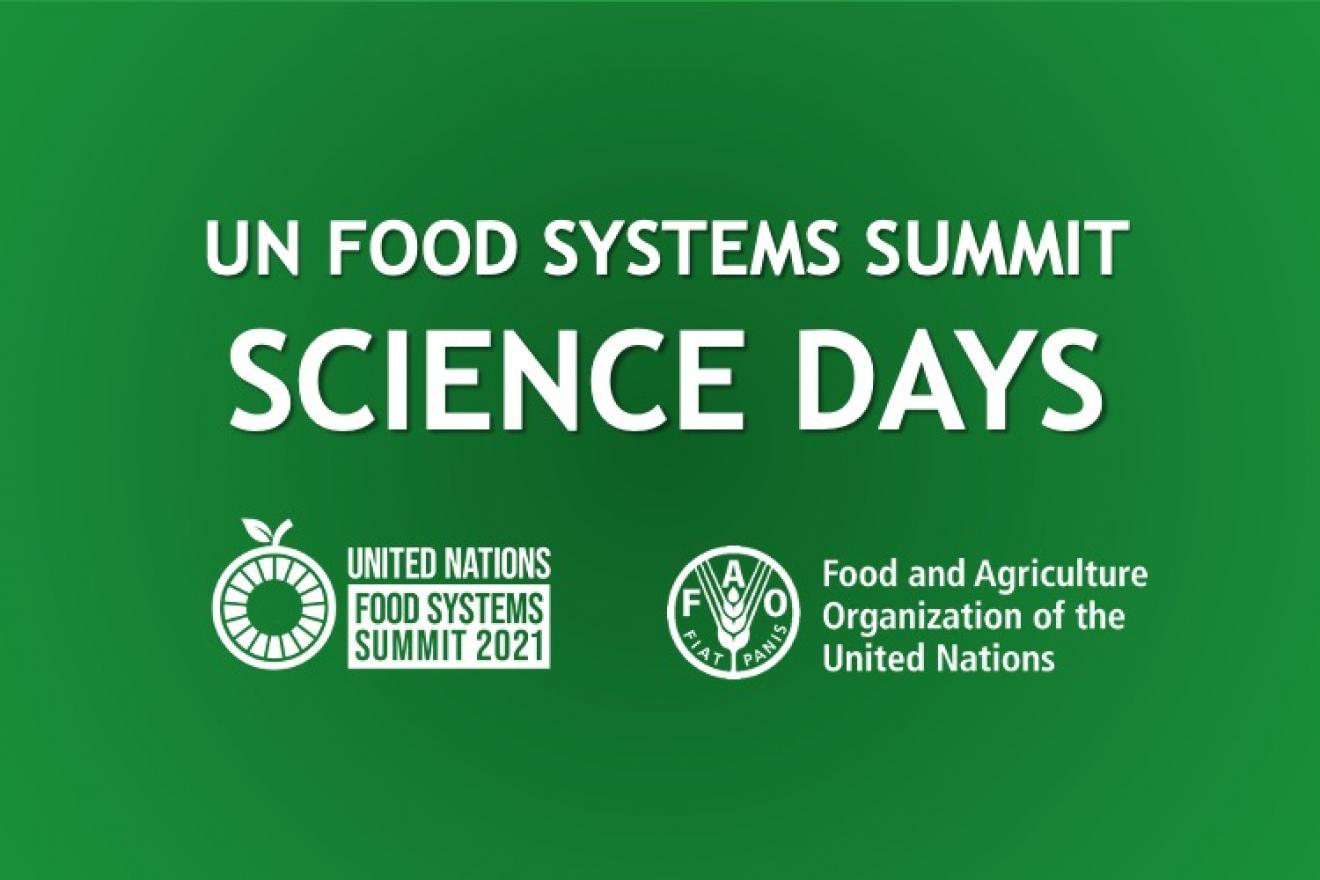
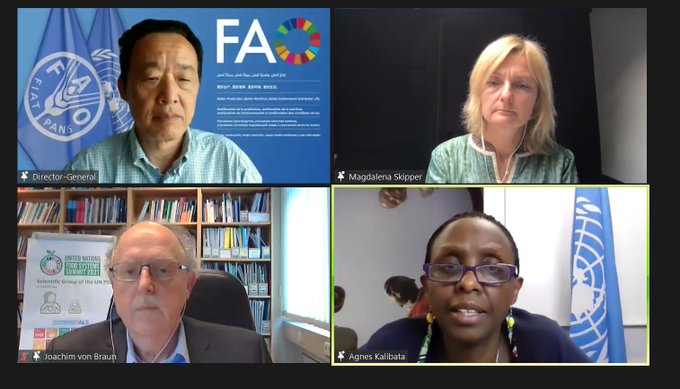
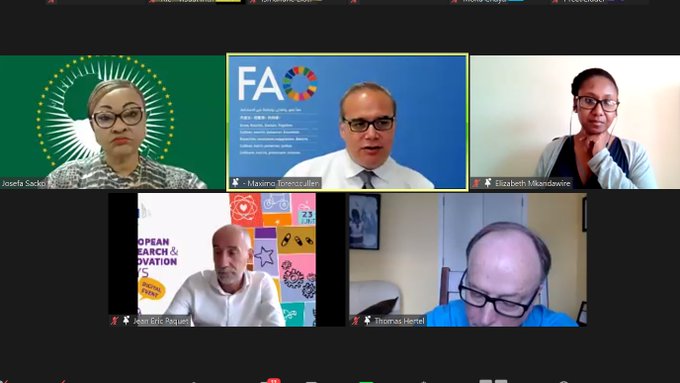


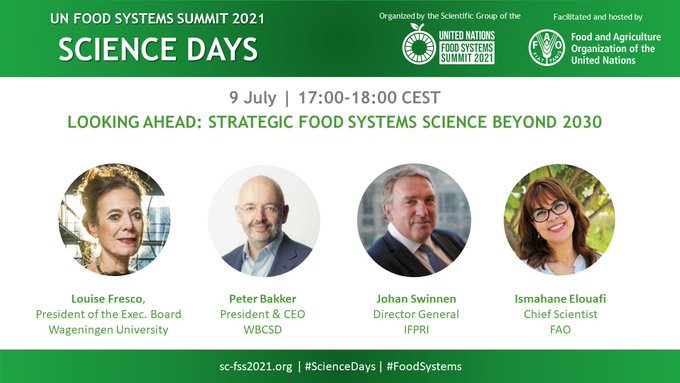
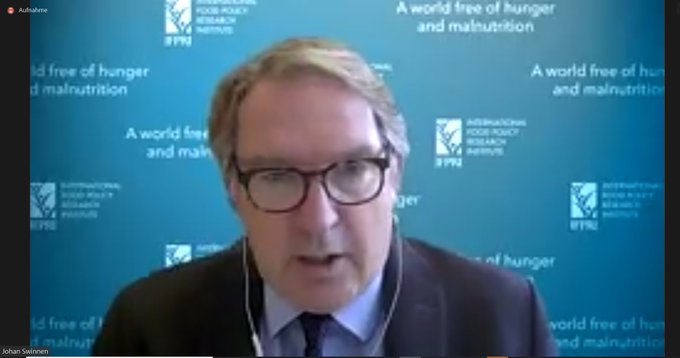

No comments:
Post a Comment